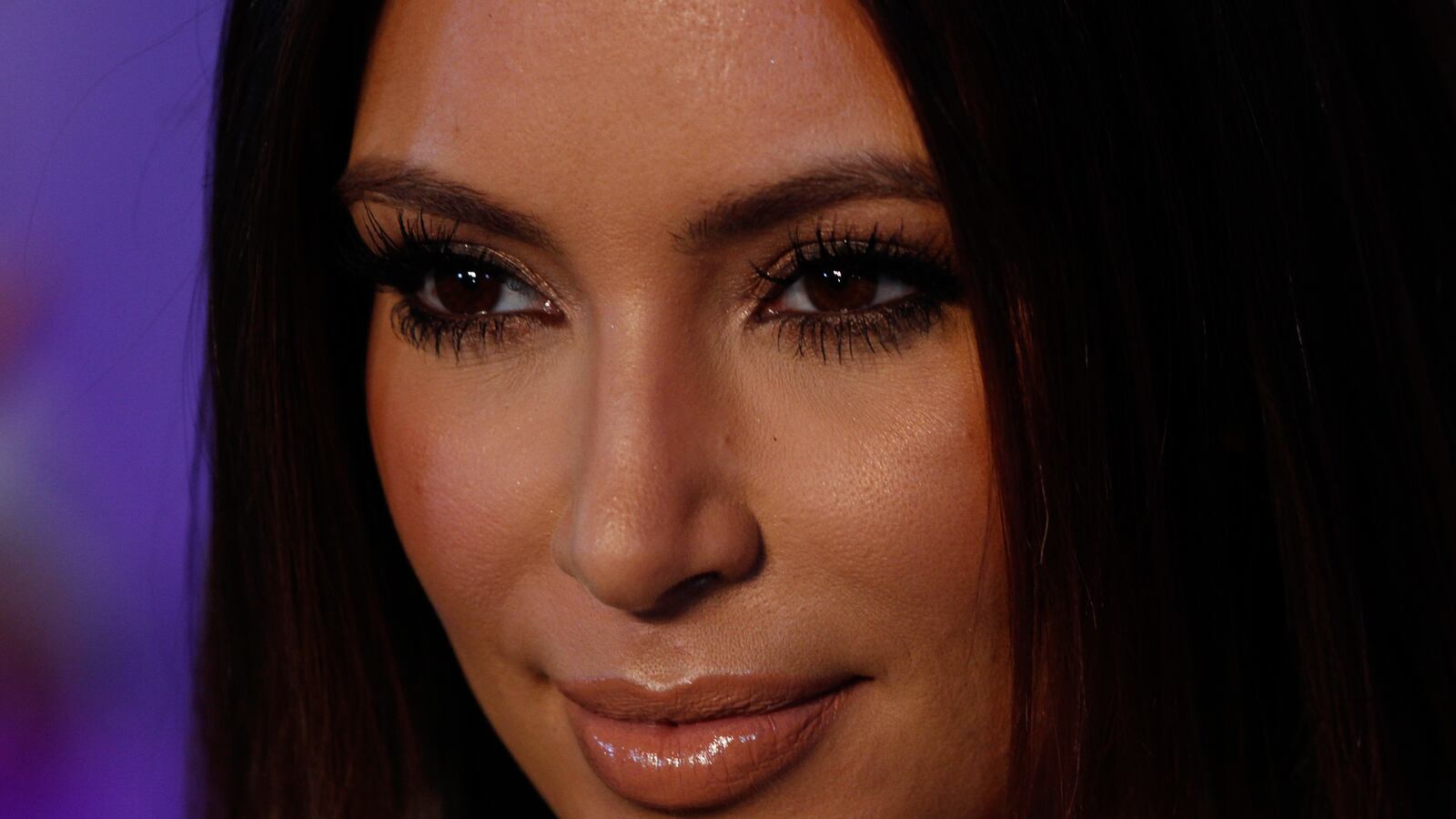In Bahrain, if you want to discuss politics with a royal, step in line behind the celebrities.

At least that's the message the people of Bahrain have gotten yet again this week as American socialite Kim Kardashian announced plans for an upcoming visit to the Persian Gulf island nation.
Just days after a controversy erupted on Twitter following things she tweeted about the conflict in Gaza, Kardashian has announced a trip to Bahrain as an opportunity to "set the record straight" and, as a source close to her said, to "raise awareness about important issues in the area," including the political situation.
Her Gaza tweets—which she later deleted—were initially viewed as pro-Israeli, and then were attacked for mentioning Palestinians. The Twitter tension got so out of hand that she took to her personal blog to clarify that she will “pray for all … the countless innocent people” in this conflict “and similar crossfires.”
Ever the diplomat or focused businesswoman?
Her new statement about “setting the record straight,” coupled with comments made by the source close to her, have got some Bahrainis—many of whom are closely watching developments in Gaza—wondering what exactly she will be doing in Bahrain to “raise awareness” of “important issues.”
One of the organizers of the trip, Indian American Paresh Shah, confirms that Kardashian is set to meet with local leaders in Bahrain, including "royalty and top entrepreneurs".
Kardashian is primarily in town to promote Shah's ice cream venture, Millions of Milkshakes, a company he cofounded with his partner Sheeraz Hasan, "a Pakistani via Nairobi" who hired Kardashian to promote a branch opening in Dubai last year. But according to Shah, Kardashian will be the guest of honor at a "VVIP grand opening dinner" where royalty will be in attendance and her accommodations while in the country are being paid for by a "high ranking royal."
The ease with which she has been granted such high profile meetings is in contrast to the difficulty Bahrainis themselves have had with just getting their message across to the government.
The Bahraini Arab Spring has been ongoing since early 2011 and has included numerous deaths, injuries and, allegedly, prison torture. For the first time ever, Bahraini tweeters have even been arrested and sentenced for defaming the king, in reference to the protests. Though they have received relatively little international press coverage, the Bahrain Arab Spring protests have been problematic for a government that relies on an image as a friendly place for international business.
Instead of meeting with protesters, in fact the Bahraini government recently announced a total ban on public protest.
Judging by the comments her Bahrain tweet has received, not everyone is pleased about Kardashian’s visit and some Bahrainis wonder if her campaign to raise awareness during her royal meetings will include discussions of the Bahraini Arab Spring that has been primarily focused on the royal government's treatment of Bahrainis.
"A lot of people started writing to her on Twitter, telling her about all the human rights violations that have been ongoing in Bahrain, trying to shed some light," says Maryam Al Khawaja, acting president of the Bahrain Center for Human Rights.
Al Khawaja's words are gentler in comparison to others who have tweeted "we still hate you,” “we have no respect for you,” and “we don’t want you in Bahrain.”
Many others have tweeted about “the Bahraini regime violently crushing political dissenters,” bringing up old wounds about the government’s treatment of its majority Shia population and anyone who supports the protests – treatment that extends to the government refusing visas based on religion.
It's what Al Khawaja refers to as the "policy of discrimination when it comes to sectarianism" which is well known to affect non-Bahraini citizens who come from predominantly Shia countries or whose names appear to be Shia. In the past, relatives have been prevented from visiting their family in Bahrain because they were refused visas based on their religion—making Kardashian’s worry-free visa even more painful for many Bahrainis.
The majority of Bahrainis are Shia but the kingdom is run by royals who descend from Saudi Arabian Sunnis.
"Anyone who serves the purpose of the Bahraini government to make themselves look better internationally, they will allow them into the country," Al Khawaja says.
But does someone with Kardashian's reputation actually make the royal government look better?
"When [the royals] bring people as famous as Kim Kardashian,” she says, “it's because they want to send out a message that Bahrain is OK, there's nothing happening anymore.”
The facts on the ground don't suggest that things are all well and good, though. International aid agencies such as Médecins Sans Frontières have treated thousands of injured public protesters since the uprisings began, and rights groups in the country say more than a hundred protesters have died.
When asked if Kardashian's meetings with local leaders will include meetings with rights organizations, Shah says "the exact strategy" of her meetings "is being figured out" but "different groups are at play." It is unlikely, however, that Kardashian will do anything more than use her meetings with royals and local leaders to promote her personal brand, something a growing number of people in the Persian Gulf nations appear to be upset about.
It was just days ago that Kardashian’s former friend Paris Hilton was denounced in nearby Saudi Arabia by a public who views reputations like Hilton's and Kardashian’s as contrary to the culture and family values in the region. Hilton, like Kardashian, was the subject of attacks on Twitter after she shared an image of her new purse shop in the mall in the holy city of Mecca.
As with Kardashian, however, the Saudi government—run by royals who are related to the Bahraini royal family—seems to disagree with public sentiment about promotional activities by American socialites with storied pasts.






